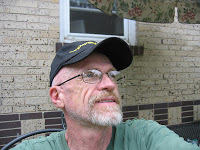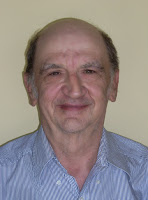The first thing that comes to my mind with the word Utopia is the Chinese café in San Francisco’s Chinatown located at 139 Waverly Place aptly named the Utopia Café. I stumbled on this sometime in the early 1990’s I believe though I could not find a date when it was first opened as a café despite a rather extensive Google search. I am quite certain though that I was there at least once with my partner David who died in 1995 and many times since. Any trip to OZ, and there have been many, almost always entails a trip to this eatery.
David and I may have happened on Waverly Alley trying to escape the crowds on Grant Street the main tourist drag through Chinatown. We were probably cruising through Chinatown one day killing a few hours before we headed south in our rental car for a Grateful Dead show down the peninsula in Mountainview at the Shoreline amphitheater.
Several of Chinatown’s most interesting alleys are just to the west of Grant, between Stockton and Grant. Or perhaps we ended up in Waverly Alley following a tip gleaned from Amy Tan’s wonderful novel The Joy Luck Club that was published in 1989.
The Joy Luck Club is the story of four Chinese immigrant mothers and their four American born daughters and their often-complex relationships entailing the dynamic push and pull between old world China and west coast America. The mothers formed their group and called themselves the Joy Luck Club in 1949 and began meeting at the First Chinese Baptist Church located at 15 Waverly Alley. They obviously met for camaraderie and emotional support but also for conversation, to eat good food and play Mahjong. All activities relished by concerned immigrant mothers raising daughters in post WWII California.
A simplistic description of Mahjong would be to think of dominoes and that would not be the pizza. Playing for money was often involved. Many of us Sage folk may know what dominoes are all about and may have actually played. My father had a set and I think they were made of bone and not Ivory, at least I hope that was the case. Though growing up in conservative rural Indiana in the 1950’s concern for African elephants or artic walrus would never have crossed my mind.
Mahjong was also popular particularly post World War II among Jewish American women. Both Jewish and Chinese women were seen as using the game as a vehicle for bonding and community building. Similar I suppose to men playing poker but without I assume the beer and cigars and I’ll bet the food was considerably better than you would find at most card games.
When walking up from the south on Waverly Alley on one’s way to the Utopia Café you will pass the Tin How Temple. It is the oldest Taoist temple in San Francisco. It is located 3 flights up from the street. The temple provides a sensory burst of stimulation in the form of many colorful displays of tribute to Mazu the Chinese Goddess of Heaven all enveloped in shrouds of pungent incense. On the several visits I have made to the shrine it seems to most often be tended by elderly Chinese women who smile pleasantly especially when you drop a dollar or two into the donation box, with no words spoken. They do seem though to exude the three treasures of Taoism: compassion, frugality and humility.
It took me several trips up Waverly over the years to correctly identify the clicking sound I would hear often in conjunction with animated Chinese dialects I certainly could not identify. It turns out the clicking sound, often emanating from open basement doors, was the sound of clicking Mahjong tiles.
On my most recent trip to San Francisco, the last two weeks of February, I again made my pilgrimage to the Utopia Café; sadly no clicking Mahjong tiles were heard. It seems to have changed hands and undergone a modest remodel in the last year or so but the menu changes, primarily to a variety of noodle dishes, did not disappoint. Per usual I was the only non-Chinese person in the restaurant and had to wait a bit for a table to open. Shortly after being seated at the two-person table a young handsome Asian man was seated across from me. Other than quiet nods we did not speak throughout the meal. He actually never looked up from his phone except very briefly even when scooping up steaming noodles. As he was getting ready to leave, having eaten much faster than I and being more adept at chop sticks and spoon I noticed a Bronco decal a on the back of his phone. I was left to ponder whether or not he was from Denver and maybe visiting family. However seeing him in the Utopia Café was further validation that this was a restaurant worthy of even out of town Chinese clientele.
Though it would be somewhat over the top to describe this modest café and its simple fare as ideal perfection it has on several occasions come pretty darn close. A warm bowl of noodles nestled in a tasty broth and topped with greens served with hot jasmine tea on a cold rainy San Francisco winter day sounds pretty Utopian to me.
© March 2018
About the Author
I was born in La Porte, Indiana in 1949, raised on a farm and schooled by Holy Cross nuns. The bulk of my adult life, some 40 plus years, was spent in Denver, Colorado as a nurse, gardener and gay/AIDS activist. I have currently returned to Denver after an extended sabbatical in San Francisco, California.




